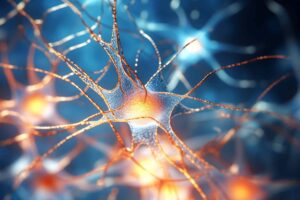Neuroscience
Industry, Events
Microbiomepost conducted an exclusive interview with Martina Piacente, from Ebris - European Biomedical Research Institute of Salerno, about the role of gut microbiome in Autism Spectrum Disorder.
Neuroscience, Pediatrics
The findings of a recent study show that Q-net can accurately predict the long-term trajectories of gut microbes and identify patterns indicative of future cognitive deficits.
Neuroscience
By examining the gut-brain-microbiota axis in typical neurodevelopment, the findings could pave the way for identifying biomarkers for cognition and brain development.
Neuroscience, Pediatrics
The findings of a recent study suggest that L. reuteri eases social difficulties in autistic children.
Neuroscience, Pediatrics
The findings of a recent study show that specific gut microbes and their metabolites affect cognition and memory when transplanted into germ-free mice.
Neuroscience, Pneumology
By suggesting that the bacteria detected in the brain after severe pneumonia originate from the lungs, the findings shed light onto the mechanisms of pneumonia-induced neurological conditions.
Gastroenterology, Neuroscience
The findings of a recent study suggest that the interplay between the microbiota, the gut and the brain drives binge-eating disorders.
Gastroenterology, Neuroscience
Microbial differences may help to identify targets that could be modulated to mitigate health inequities.
Neuroscience
The authors propose a framework to leverage multi-omic datasets obtained from well-defined cohorts and to examine the impact of the GBA on ASD.
Gastroenterology, Neuroscience
Understanding how gut microbes are linked to preclinical Alzheimer’s disease could help to identify markers of disease risk.











